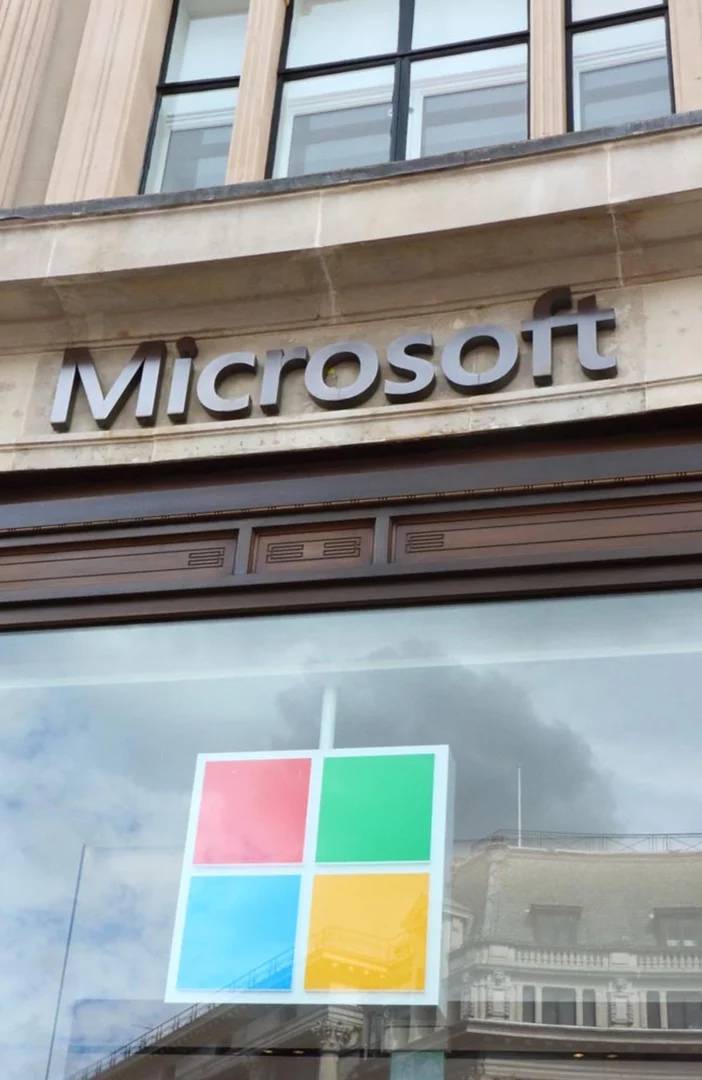
South Africa approves Microsoft's Activision Blizzard merger
South Africa is the latest country to approve of the deal.
2023-07-04 21:25

South Africa to Require Crypto Exchanges Licensing by Year-End
South Africa will require that crypto exchanges in the country operate with licenses by the end of the
2023-07-04 17:53

Harvard sued over ‘legacy admissions’ after Supreme Court targets affirmative action
Days after the US Supreme Court struck down race-conscious university admissions, civil rights groups have filed a federal lawsuit targeting so-called “legacy” admissions at Harvard University. The lawsuit, alleging widespread discrimination at the college in violation of the Civil Rights Act, is the latest challenge to the practice of prioritising university admissions for the children of alumni. “There’s no birthright to Harvard. As the Supreme Court recently noted, ‘eliminating racial discrimination means eliminating all of it.’ There should be no way to identify who your parents are in the college application process,” said Ivan Espinoza-Madrigal, executive director of Boston-based Lawyers for Civil Rights, which filed the complaint on 3 July. “Why are we rewarding children for privileges and advantages accrued by prior generations?” he said in a statement. “Your family’s last name and the size of your bank account are not a measure of merit, and should have no bearing on the college admissions process.” The group filed the lawsuit on behalf of the Chica Project, the African Community Economic Development of New England and the Greater Boston Latino Network. Last week, the conservative supermajority on the nation’s highest court ruled that private and public colleges and universities may not consider race as a factor in admissions, striking down the precedent affirmed in the 2003 ruling in Grutter v Bollinger. Civil rights advocates and justices who supported the decades-long precedent, intended to promote racially diverse college campuses, derided what they argue is the court’s ongoing perversion of the 14th Amendment and the foundational concept of equal protection. The latest lawsuit points to Harvard data finding that 70 per cent of the college’s donor-related and legacy applicants are white. So-called “legacy” applicants have a roughly six times greater chance of admission, according to records, pointing to a “custom, pattern and practice” that is “exclusionary and discriminatory” and “severely disadvantages and harms applicants of color,” plaintiffs argued. The complaint calls on the US Department of Education to initiate a federal investigation into Harvard’s application process and for the federal government to declare such practices illegal. “Harvard’s practice of giving a leg-up to the children of wealthy donors and alumni – who have done nothing to deserve it – must end,” Lawyers for Civil Rights litigation fellow Michael Kippins said in a statement accompanying the complaint. Following the Supreme Court ruling, Democratic lawmakers and President Joe Biden urged universities to reconsider their legacy admissions, which he said “expand privilege instead of opportunity.” The Independent has requested comment from Harvard. Read More Biden condemns Supreme Court striking down affirmative action: ‘This is not a normal court’ Biden reveals ‘new path’ to student debt relief after Supreme Court strikes down president’s plan Pence ‘doesn’t believe’ racial inequality exists in schools as he celebrates SCOTUS affirmative action ban
2023-07-03 22:57

Nigeria offers students loans - they want jobs
Two massive reforms are aimed at improving Nigeria's dilapidated universities - but will they work?
2023-07-03 08:19

A $30 Billion Disaster Is Just the Tip of a Deadly Climate Cycle
When night falls in the refugee camp outside Karachi, Shanawaz Khoso worries about snake bites. The 38-year-old and
2023-07-03 07:21
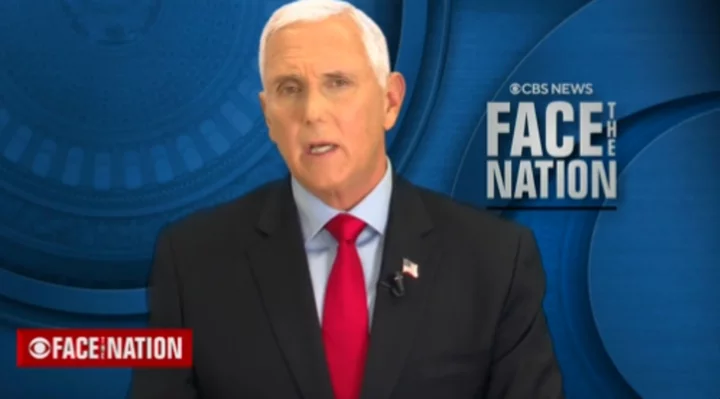
Pence ‘doesn’t believe’ racial inequality exists in schools as he celebrates SCOTUS affirmative action ban
Mike Pence cheered the end of affirmative action in US colleges and universities on Sunday in the wake of the Supreme Court’s ruling outlawing the practice. The former vice president discussed the issue on CBS’s Face the Nation and said that the time for policies aimed at improving outcomes for minority students in general had passed. A candidate for the presidency in 2024, Mr Pence is gunning for the GOP nomination against his own former boss, Donald Trump, and other conservatives like Florida Gov Ron DeSantis and former UN Ambassador Nikki Haley. His comments came as activists and authorities in the higher education field vowed to keep fighting to ensure that diversity would remain a core value in student recruiting. “Fundamentally, do you believe that there are racial inequities in the education system in the United States?” asked host Margaret Brennan. “I really don’t believe there is [racial inequality in US schools]. I believe there was,” Mr Pence said. “I mean, it’s — there may have been a time when affirmative action was necessary simply to open the doors of all of our schools and universities, but I think that time has passed.” His response drew immediate backlash on Twitter, with many questioning whether Mr Pence’s children had attended schools and colleges with diverse student bodies. The three Pence children, Michael, Charlotte and Audrey, attended Purdue, DePaul, and Yale Universities. The Supreme Court ruled on Thursday that universities and colleges may not consider race as a specific factor when choosing to admit individual students. They may, however, continue to take into account how race plays into the individual experiences that those prospective students describe in their applications, such as in personal essay prompts. “[T]he student must be treated based on his or her experiences as an individual—not on the basis of race,” wrote Chief Justice John Roberts for the majority. The suit was brought on behalf of a group of Asian American students who argued that they were discriminated against by admissions staff at Harvard University. Critics of the ruling say it will gut efforts to improve representation of minority students in college classes. College enrollment rates remain noticeably lower among Black and Hispanic students compared to white and Asian American students. In addition, an analysis of US education data has shown that about 40 per cent of Black children attend schools where 90 per cent or more of the students are nonwhite. President Joe Biden responded to the ruling on Thursday after news of the decision broke, telling reporters simply: “This is not a normal court.” Read More Biden reveals ‘new path’ to student debt relief after Supreme Court strikes down president’s plan The Supreme Court risks inflaming the prejudices that America sought to banish In 370 days, Supreme Court conservatives dash decades of abortion and affirmative action precedents Mike Pence claims Biden is rehabilitating the Iran nuclear deal Trump returns to campaign rallies, draws thousands to small South Carolina city ahead of July 4 Biden blames GOP for student loan ruling as 2024 political consequences loom
2023-07-03 05:27
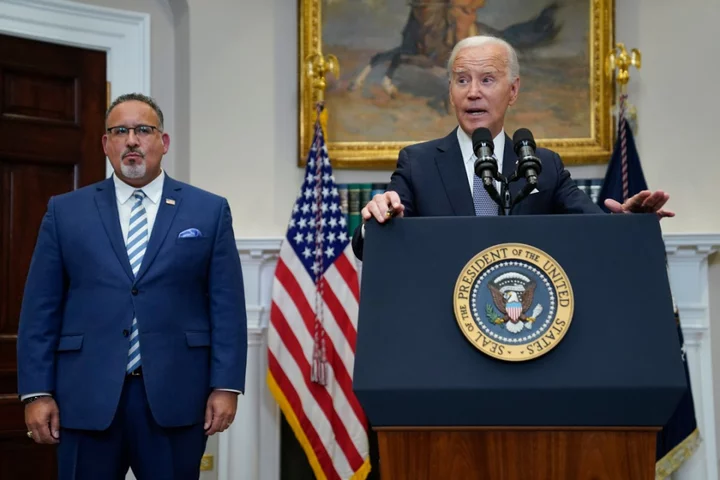
Biden reveals ‘new path’ to student debt relief after Supreme Court strikes down president’s plan
After the US Supreme Court struck down his administration’s plan to cancel federal student loan debts for millions of Americans, President Joe Biden has unveiled a “new path” for relief, one that he assured is “legally sound” but will “take longer”. In remarks from the White House on 30 June, the president hit out at Republican state officials and legislators who supported the lawsuit which enabled the nation’s highest court to strike down his student debt forgiveness initiative, accusing many of them of hypocrisy for taking money from pandemic-era relief programs while opposing relatively meager relief for student loan borrowers. “Some of the same elected Republicans, members of Congress who strongly opposed relief for students, got hundreds of thousands of dollars themselves ... several members of Congress got over a million dollars — all those loans are forgiven,” he said. “The hypocrisy is stunning,” he said. Accompanied by Secretary of Education Miguel Cardona, Mr Biden opened his remarks by acknowledging that there are likely “millions of Americans” who now “feel disappointed and discouraged or even a little bit angry about the court’s decision today on student debt”. “And I must admit, I do too,” he said. Still, Mr Biden reminded Americans that his administration has previously taken actions to reform student loan repayment programs to make them easier to access, and to keep borrowers from spending more than five per cent of disposable income on monthly repayments, and to strengthen loan forgiveness options for borrowers who take public service jobs. The president has directed Mr Cardona to “find a new way” to grant similar loan relief “as fast as we can” in a way that is “consistent” with the high court’s decision. On Friday, the Education Department issued the first step in the process of issuing new regulations under this so-called “negotiated rulemaking” process. In the mean time, Mr Biden said his administration is creating a temporary year-long “on-ramp repayment programme” under which conditions will remain largely the same as they have during the three-year pandemic-era pause in payments which is set to expire this fall. The department’s 12-month “on ramp” to begin repayments, from 1 October through 30 September, aims to prevent borrowers who miss repayments in that time period from delinquency, credit issues, default and referral to debt collection agencies. “During this period if you can pay your monthly bills you should, but if you cannot, if you miss payments, this on-ramp temporarily removes the threat of default,” he said. “Today’s decision closed one path. Now we’re going to pursue another — I’m never gonna stop fighting,” the president continued, adding that he will use “every tool” at his disposal to get Americans the student debt relief they need so they can “reach [their] dreams”. “It’s good for the economy. It’s good for the country. It’s gonna be good for you,” he said. Asked by reporters whether he’d given borrowers false hope by initiating the now-doomed forgiveness plan last year, Mr Biden angrily chided the GOP for having acted to take away the path to debt relief for millions. “I didn’t give any false hope. The question was whether or not I would do even more than was requested. What I did I felt was appropriate and was able to be done and would get done. I didn’t give borrowers false hope. But the Republicans snatched away the hope that they were given and it’s real, real hope,” he said. The Supreme Court’s 6-3 ruling from the conservative majority argues that the president does not have the authority to implement sweeping relief, and that Congress never authorised the administration to do so. Under the plan unveiled by the Biden administration last year, millions of people who took out federally backed student loans would be eligible for up to $20,000 in relief. Borrowers earning up to $125,000, or $250,000 for married couples, would be eligible for up to $10,000 of their federal student loans to be wiped out. Those borrowers would be eligible to receive up to $20,000 in relief if they received Pell grants. Roughly 43 million federal student loan borrowers would be eligible for that relief, including 20 million people who stand to have their debts cancelled completely, according to the White House. Lawyers for the Biden administration contended that he has the authority to broadly cancel student loan debt under the Higher Education Relief Opportunities for Students Act of 2003, which allows the secretary of education to waive or modify loan provisions following a national emergency – in this case, Covid-19. Since March 2020, with congressional passage of the Cares Act, monthly payments on student loan debt have been frozen with interest rates set at zero per cent. That pandemic-era moratorium, first enacted under Donald Trump and extended several times, was paused a final time late last year. Over the last decade, the student loan debt crisis has exploded to a balance of nearly $2 trillion, most of which is wrapped up in federal loans. The amount of debt taken out to support student loans for higher education costs has surged alongside growing tuition costs, increased private university enrollment, stagnant wages and GOP-led governments stripping investments in higher education and aid, putting the burden of college costs largely on students and their families. Read More Supreme Court strikes down Biden’s plan to cancel student loan debts Supreme Court strikes down affirmative action, banning colleges from factoring race in admissions Biden condemns Supreme Court striking down affirmative action: ‘This is not a normal court’ Justice Ketanji Brown Jackson delivers searing civil rights lesson in dissent to affirmative action ruling
2023-07-01 04:47
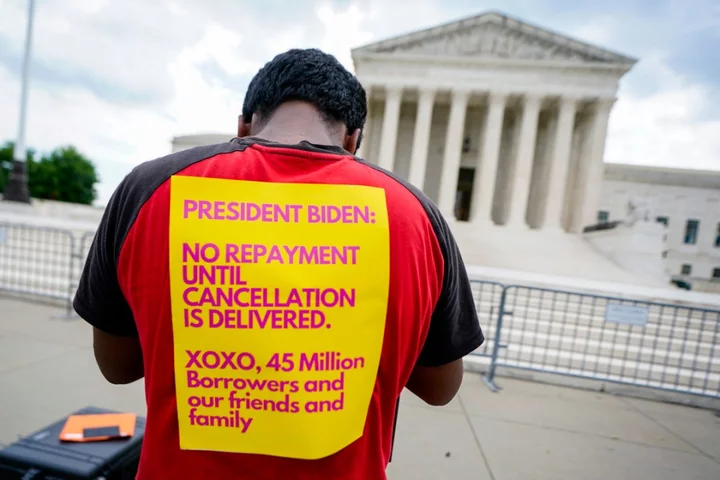
Supreme Court strikes down Biden’s plan to cancel student loan debts
The US Supreme Court has struck down President Joe Biden’s plan to cancel student loan debts for millions of Americans, reversing his campaign-trail promise as borrowers prepare to resume payments this summer. Chief Justice John Roberts delivered the 6-3 decision from the court’s conservative majority. The ruling, which stems from a pair of cases challenging the Biden administration and the US Department of Education, argues that the president does not have authority to implement sweeping relief, and that Congress never authorised the administration to do so. Within 30 minutes on the last day of its term, the court upended protections for LGBT+ people and blocked the president from a long-held promise to cancel student loan balances amid a ballooning debt crisis impacting millions of Americans. Under the plan unveiled last year, millions of people who took out federally backed student loans would be eligible for up to $20,000 in relief. Borrowers earning up to $125,000, or $250,000 for married couples, would be eligible for up to $10,000 of their federal student loans to be wiped out. Those borrowers would be eligible to receive up to $20,000 in relief if they received Pell grants. Roughly 43 million federal student loan borrowers would be eligible for that relief, including 20 million people who stand to have their debts canceled completely, according to the White House. Roughly 16 million already submitted their applications and received approval for debt cancellation last year, according to the Biden administration. The long-anticipated plan for debt cancellation was met almost immediately with litigation threats from conservative legal groups and Republican officials, arguing that the executive branch does not have authority to broadly cancel such debt. Six GOP-led states sued the Biden administration to stop the plan altogether, and a federal appeals court temporarily blocked any such relief as the legal challenges played out. Since March 2020, with congressional passage of the Cares Act, monthly payments on student loan debt have been frozen with interest rates set at zero per cent. That Covid-19-pandemic era moratorium, first enacted under Donald Trump and extended several times, was paused a final time late last year – until the Education Department is allowed to cancel debts under the Biden plan, or until the litigation is resolved, but no later than 30 June. Payments would then resume 60 days later. The amount of debt taken out to support student loans for higher education costs has surged within the last decade, alongside growing tuition costs, increased private university enrollment, stagnant wages and GOP-led governments stripping investments in higher education and aid, putting the burden of college costs largely on students and their families. The crisis has exploded to a total balance of nearly $2 trillion, mostly wrapped up in federal loans. Millions of Americans also continue to tackle accrued interest without being able to chip away at their principal balances, even years after graduating, or have been forced to leave their colleges or universities without obtaining a degree at all while still facing loan repayments. Borrowers also have been trapped by predatory lending schemes with for-profit institutions and sky-high interest rates that have made it impossible for many borrowers to make any progress toward paying off their debt, with interest adding to balances that exceed the original loan. One analysis from the Education Department found that nearly 90 per cent of student loan relief would support people earning less than $75,000 per year. The median income of households with student loan balances is $76,400, while 7 per cent of borrowers are below the poverty line. That debt burden also falls disproportionately on Black borrowers and women. Black college graduates have an average of $52,000 in student loan debt and owe an average of $25,000 more than white graduates, according to the Education Data Initiative. Four years after graduating, Black student loan borrowers owe an average of 188 per cent more than white graduates. Women borrowers hold roughly two-thirds of all student loan debt, according to the American Association of University Women. Mr Biden’s announcement fulfilled a campaign-trail pledge to wipe out $10,000 in student loan debt per borrower if elected, though debt relief advocates and progressive lawmakers have urged him to cancel all debts and reject means-testing barriers in broad relief measures. In November 2020, the president called on Congress to “immediately” provide some relief for millions of borrowers saddled by growing debt. “[Student debt is] holding people up,” he said at the time. “They’re in real trouble. They’re having to make choices between paying their student loan and paying the rent.” This is a developing story Read More Supreme Court allows Colorado designer to deny LGBT+ customers in ruling on last day of Pride Month Biden condemns Supreme Court striking down affirmative action: ‘This is not a normal court’ Justice Ketanji Brown Jackson delivers searing civil rights lesson in dissent to affirmative action ruling
2023-06-30 23:16

Melania Trump hawks $50 NFTs to ‘celebrate our great nation’ ahead of July 4
Melania Trump is launching a collection of $50 non-fungible tokens (NFTs) featuring US landmarks in time for the 4th of July. The former first lady’s “1776 Collection” includes images of Mount Rushmore, the Statue of Liberty and the Liberty Bell, set to patriotic-themed music. Ms Trump’s office said in a statement that each NFT was designed to celebrate the “foundations of American ideals”. “The 1776 Collection of artwork draws inspiration from several iconic landmarks of our nation, which I had the privilege of visiting during the time I served as first lady,” Ms Trump said. “I am proud to celebrate our great nation and remain inspired by the words contained within the Declaration of Independence.” An NFT is a blockchain-based certificate verifying ownership. The 1776 Collection was created on the Solana blockchain, and went on sale on Thursday. Ms Trump’s office said a portion of the sale price would go to support foster children. The site did not immediately respond to a request for further details about what percentage of the proceeds would be donated. Ms Trump has previously dabbled in NFTs since leaving the White House. In 2021, she launched a digital watercolour painting of her eyes for $180 each. Then in 2022, Ms Trump faced accusations of bidding $185,000 in an auction for her “Head of State Collection 2022.” An analysis of Solana blockchain transactions by Bloomberg found the winning bid of 1800 SOL came from a wallet that belonged to the entity that originally listed the project for sale. Read More Trump news - live: DOJ prepares to hit Trump with new charges as ex-official cooperates in 2020 election probe Trump lashes out at ‘fake’ Jake Tapper after CNN host cuts away from arraigned ex-president meeting fans Meet Jesse Watters, the Fox News host helming Tucker Carlson’s primetime slot Prosecutors are prepared to hit Trump and his allies with new charges, sources say
2023-06-30 22:19

South Africa Needs to Deal With ‘Energy Poverty,’ Minister Says
South Africa must balance the need to cut emissions with increasing electricity access and developing its natural resources,
2023-06-30 18:58
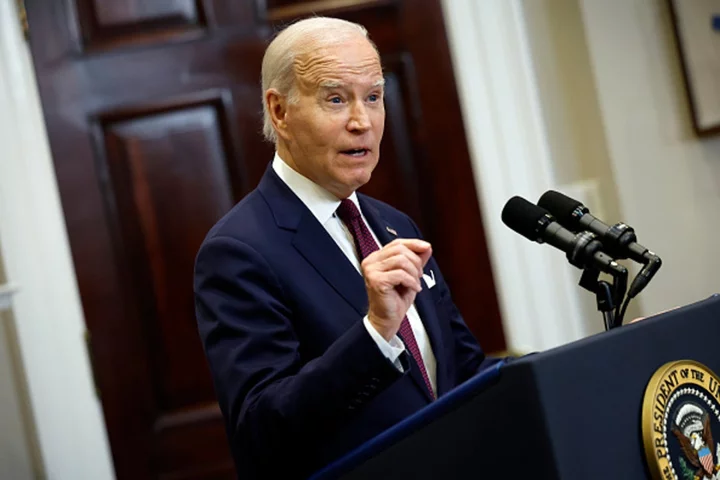
Biden condemns Supreme Court striking down affirmative action: ‘This is not a normal court’
President Joe Biden on Thursday said he “strongly, strongly disagree[d” with the Supreme Court’s decision to strike down the use of affirmative action programmes in college admissions decisions and condemned the six-justice majority that did so as “not a normal court”. Mr Biden’s harsh words for the highest court in the land came in response to a reporter’s query on whether the court was acting as a “rogue court,” just after he addressed the landmark decision in brief remarks before departing the White House for New York. Speaking from the Roosevelt Room in the West Wing, the president echoed the dissenting Justices, Sonia Sotomayor, Elena Kagan and Ketanji Brown Jackson, in his reaction to the ruling, which ends the long-standing precedent that allowed colleges and universities to use affirmative action to help establish a diverse group of accepted students. “Discrimination still exists in America. Today’s decision does not change that,” Mr Biden said in a brief press conference. He added: “I believe our colleges are stronger when they’re racially diverse. Our nation is stronger because we are tapping into the full range of talent in this nation. We cannot let this decision be the last word.” The rulings come from two consolidated cases, Students for Fair Admissions v University of North Carolina and Students for Fair Admissions v Harvard College. Both cases were brought forth by the anti-affirmative action organisation Students for Fair Admissions. That group, which is headed by conservative legal strategist Edward Blum, has for years made attempts to give the court’s GOP-appointed majority a chance to gut previous court precedents which have been used to justify limited use of race-based preferences in college admissions. While the court upheld such programmes in a decision nearly two decades, ago, the newly-emboldened conservative majority swept away any legal justification for them in Thursday’s opinions. In a 6-3 and 6-2 decision, the Court’s conservative majority sided with Students for Fair Admissions claiming the use of race-conscious admissions was a violation of the Equal Protection Clause of the 14th Amendment. Now, higher education institutions will no longer be allowed to consider race as a factor in admissions. Instead, students who wish to have their race or culture considered in their application will have to volunteer the information like in their personal essay. At the end of the press conference, Mr Biden responded to a question about the court’s decision to strike down a long-standing precedent: “This is not a normal Court.” Leaders from Harvard said in a letter that they would “comply” with the court’s decision but emphasised that “deep and transformative teaching, learning, and research depend upon a community comprising people of many backgrounds, perspectives, and lived experiences.” Mr Biden said he is directing the Department of Education to analyse best practices for high education institutions to create more inclusive and diverse student bodies without using race as a conscious factor in admissions and recruiting. The Harvard Black Students Association called the court’s decision, “detrimental”, adding that it “poses a significant threat to the future of the Black community on and beyond our campus.” “It is evident that the college application system cannot maintain holistic evaluation without taking into consideration how race profoundly influences our experiences, perspectives, and identities in multifaceted ways,” the Harvard Black Students Association wrote. Derrick Johnson, the president and CEO of the NAACP, said in a statement: “In a society still scarred by the wounds of racial disparities, the Supreme Court has displayed a willful ignorance of our reality.” Discussions around affirmative action have generated debate among Republicans and Democrats for years. Those in support of it believe it is necessary to create fair and equal opportunity for students of color because higher education institutions have failed at creating diverse student bodies. Those against affirmative action believe it puts other students, like white or Asian American students, at a disadvantage. Former president Donald Trump celebrated the ruling calling it “everyone was waiting for” in a post on Truth Social. “We’re going back to all merit-based – and that’s the way it should be!” Mr Trump wrote. Mr Trump appointed three of the six conservative Justices on the Court while serving as President of the United States – Justices Neil Gorsuch, Brett Kavanaugh and Amy Coney Barrett. Mr Trump’s former vice president, Mike Pence, also expressed support for the Court’s decision, writing on Twitter, “I am honored to have played a role in appointing three of the Justices that ensured today’s welcomed decision.” He added: “There is no place for discrimination based on race in the United States, and I am pleased that the Supreme Court has put an end to this egregious violation of civil and constitutional rights in admissions processes, which only served to perpetuate racism.” The ruling will likely have repercussions beyond higher education institutions, extending to elementary, middle and high schools as well as workplaces and more as it opens a door for challenges to racial diversity programs. Read More Justice Ketanji Brown Jackson delivers searing civil rights lesson in dissent to affirmative action ruling How the government that promised to ‘stop the boats’ has lost control of its immigration policy Clarence Thomas says he doesn’t have a ‘clue’ what diversity means as Supreme Court takes aim at affirmative action One year after the anti-abortion ruling, the White House keeps a spotlight on the issue
2023-06-30 02:16
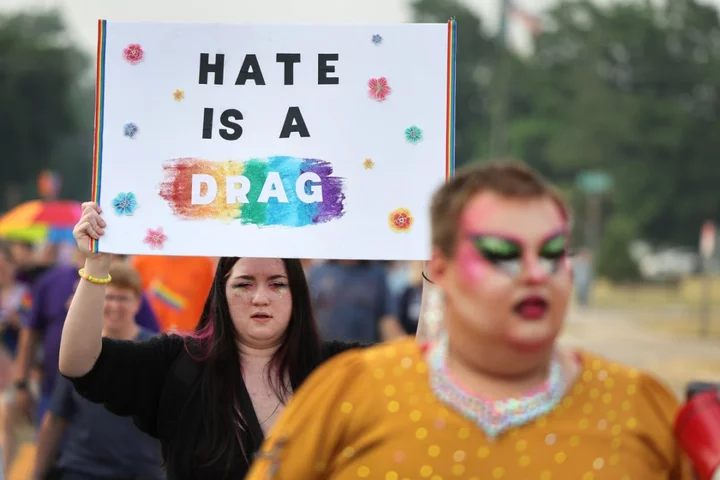
More than half of Americans have experienced online hate and harassment, report finds
More than half of all Americans have experienced online hate or harassment within their lifetimes, while reports of online abuse among teenagers and LGBT+ people have surged within the last year, according to an annual survey from a leading civil rights group. The Anti-Defamation League’s fifth annual survey charts a dramatic increase in reports of online hate and harassment among several groups over the last year, including 51 per cent of teenagers between ages 13 and 17 – an increase of 15 per cent from the same point last year. Forty-seven per cent of LGBT+ people, 38 per cent of Black people, and 38 per cent of Muslims have reported online hate and harassment over the last 12 months, according to the report, which calls on Congress, the White House and social media companies to implement stronger protections against online abuse. “We’re confronted with record levels of hate across the internet, hate that too often turns into real violence and danger in our communities,” according to a statement from ADL CEO Jonathan Greenblatt. “The time for talking, and for planning, is long over. It’s time to execute on the priorities set out by the White House and other policymakers, and it’s time for big tech companies to deliver on their promises to reduce hate online.” Reports of online abuse are particularly acute among transgender people; 76 per cent of trans respondents said they have been harassed online within their lifetimes, and more than half experienced such abuse within the previous 12 months – the most among any demographic included in the survey. “Due to the recent proliferation of extreme anti-transgender legislation and rhetoric, ADL sampled transgender individuals separately this year,” according to the report. By the end of May, state lawmakers had introduced more than 500 bills impacting LGBT+ people in 2023, including 220 bills specifically targeting trans and nonbinary Americans, according to an analysis from the Human Rights Campaign. In remarks at the White House earlier this month, President Joe Biden condemned the “totally, thoroughly unjustified and ugly” wave of legislation impacting LGBT+ Americans. A separate report from the ADL and GLAAD discovered more than 350 targeted threats against LGBT+ people within the last year, including online harassment as well as armed protests at drag performances, bomb scares against hospitals that provide gender-affirming healthcare, and other acts of violence, including a mass shooting inside a Colorado Springs LGBT+ nightclub. Incidents targeting drag performers and the people and venues that host them have accelerated across the US, with similar threats surfacing in the UK, according to a separate recent report from the Institute for Strategic Dialogue. The group collected 203 on- and offline threatening incidents within the last year. The ADL’s latest survey of 2,139 people was performed online with the ADL and YouGov from 7 March through 24 March. Read More More than 200 anti-drag attacks documented across US as nation leads global threats to LGBT+ events Ritchie Torres, the only openly gay Black man in Congress, on how he fights GOP ‘bullying’ of LGBT+ people Elon Musk promotes transphobic content as hate speech surges on his far-right platform White House rejects Lauren Boebert’s claim that antisemitism plan will be used ‘go after conservatives’
2023-06-29 00:55
